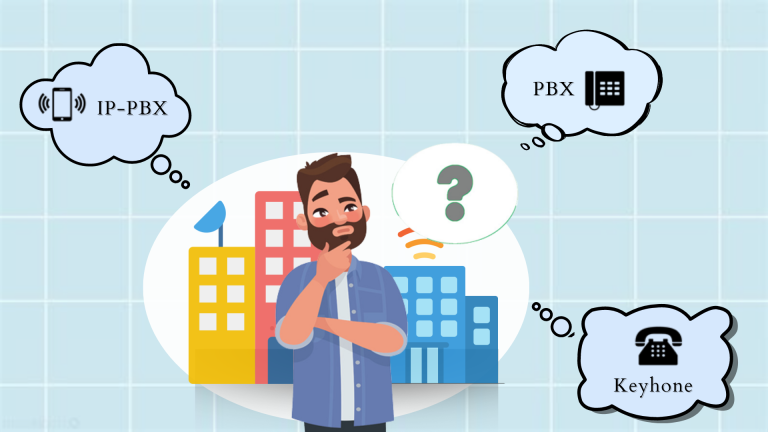
Standard Keyphone vs Traditional PBX vs Business IP-PBX
In this modern technology era, every business company needs suitable equipment with the best price to support their daily operation, especially in their communication form. A telephone system is an essential technology for handling calls and information transfer to maintain the relationship between the company and clients. However, which telephone system gives the best features associated with the company’s needs?
Hence, this article provides a simple comparison between standard keyphone, traditional PBX, and Business IP-PBX. Thus, it will help you make a good decision in choosing which is the best telephone system for your company.
Features of Keyphone
Keyphone systems are not customizable but offer primary calling features for small business’s needs. A PBX system offers the same features a key system does, plus dozens more. One of the main benefits of a PBX system over a keyphone system is its flexibility and configurable individual lines can have different functions to serve each employee best. Meanwhile, IP-PBX has particular features designed for big companies.
Standard Keyphone
- Voice calling
- Call Hold
- Voicemail
- Caller ID
- Call Recording
- Indication light
Traditional PBX
- Voice calling
- Ability to Transfer calls
- Call Hold/ Call Waiting
- Voicemail
- Caller ID
- Faxing
- Phone Audio Conferencing
- Call blocking
Business IP-PBX
- IVR & ACD
- Call forwarding
- Voicemail Transcription
- Automated Outbound Dialing Modes
- Call Parking, Call Flip, Hot Desking
- Call Queuing and Automated call-backs
- Call Routing Strategies
- Call Recording and transcription
- Call monitoring, call barge, call whisper
- Video calling
- Instant Messaging
- Business SMS texting
- Virtual faxing
- Social Media Integration
Costs of Keyphone
The setup cost for the three phone systems varies based on their hardware, installation, maintenance, software licensing, and other additional charges such as business phone feature billing (phone, fax, message). Standard keyphone is cheaper than PBX and IP-PBX, while IP-PBX is more costly than keyphone and PBX. We summarized the top commodity cost for keyphone, PBX, and IP-PBX.
Standard Keyphone
- Need to purchase new handsets/ telephone
- High maintenance costs where all the external phones line need to connect to the KSU cabinet
- Required to hire skilled technicians
Traditional PBX
- Need to purchase new handsets/telephone
- Maintenance required to hire skilled technicians
- Pricier than traditional keyphone for its configuration, flexibility, supports more line extensions and other extra features
Business IP-PBX
- More costly in terms of its equipment and contract fees
- Lower upfront investment than PBX but costs quickly add up depending on the provider, plan, features, and number of users
- Offers significant cost savings over PBX since it comes with more features, high levels of mobility and scalability, high-security standards
Benefits and Limitation
Keyphone System
Benefit
– Small and much easier to maintain, suitable for small and medium-sized business company
– Offers essential calling features in lower price
– Use one phone number per company, hence client can reach the company easily
– Affordable for businesses with up to 50 employees in the office
Limitation
– System is not expandable and lacks flexibility
– Only use the system inside the building where the corresponding installed hardware is
– Not the best choice for business with expanding office plans in the future
PBX System
Benefit
– Not complex, suitable for small business companies
– Has extra features such as flexibility and a configurable wealth of automated features
– Offers high call quality and reliability as audio since not affected by the strength of an internet connection
– More scalable than keyphone system and could support a growing small business
– Can accommodate more than 50 employees in the office
Limitation
– System has a very high upfront cost
– Has potential for sudden maintenance expenses at any moment for hosting and maintaining the system
– Limited features make company difficult to keep pace with competitors with advanced phone system
– More cost to hire IT teams and a space to host the server
IP-PBX System
Benefit
– Majorly used in a big business company as it offers significant cost savings
– Access more advanced features and additional communication channels
– Very scalable, can accommodate more than a hundred employees
– Team can use the system anywhere as long as there is internet access
– Quick and easy installation because less hardware is involved
Limitation
– Some providers require a long-term commitment/contract with an early termination fee to get the best upfront price
– Company gains less control and customization over the whole phone system since it is a host system
– Potential for security issues where employees connect to the system over an unsecured WiFi network
– Call quality issue if poor internet connection, which means company/user often need to upgrade their internet to a pricier plan for better internet connection

